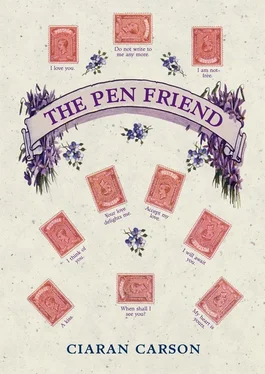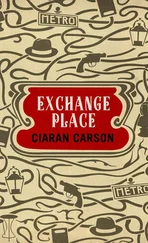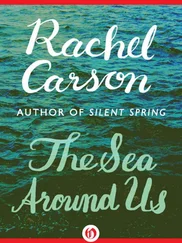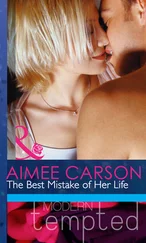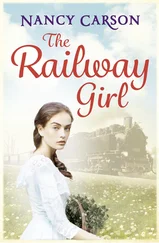He badly needs a drink after all this, but he’s just spent his last penny on the glass of Guinness he’d slipped out for when he was supposed to be copying the Bodley and Kirway contract, so he pawns his watch, he gets six shillings for it, and he goes on a pub-crawl, he meets these various cronies on the way, and he tells them the story of how he faced down the boss, he acts Alleyne shaking his fist in his face, then he acts himself delivering the smart remark, and who should come in but another crony, so he has to tell the story again, only better this time. And all this time he’s standing the rounds, no one else seems to have any money.
Anyway, they end up in Mulligans, the small parlour at the back, we were in one off the snugs just off the front bar, and I gestured with the hand that wasn’t holding my pint, down there, I said, they made it into an Art Deco bar in the thirties, it’s really rather special in its own way, but this, and I gestured again, to the dark surroundings of the front bar, this hasn’t changed since Joyce’s time, and anyway, I said, two young women with big hats and a young man in a check suit come in, Joyce is very good on dress, one of the women’s wearing an immense scarf of peacock-blue muslin wound round her hat, it’s knotted in a great bow under her chin, and she’s wearing primrose-yellow gloves up to the elbow, and Farrington starts to make eyes at her, he thinks she’s making eyes back at him, but then when the party gets up to go she brushes against his chair and says, O, pardon! in a London accent, and he realises she’s way beyond his class anyway, and he starts to think of all the money he’s spent on his so-called friends, there’s nothing he hates more than a sponge, and then someone proposes an arm-wrestling match, and Farrington gets beat twice by the one of the cronies he was standing drinks for, a mere stripling, and he ends up getting the tram home by himself, past the barracks, it’s dark and cold and wet, he doesn’t know what time it is, his watch is in the pawn, he’s spent all his money that wasn’t even his in the first place, and he doesn’t even feel drunk, and when he gets home his dinner’s cold and the fire’s out, one of his boys tells him his wife’s out at the chapel, and he starts to mimic him, Out at the chapel, at the chapel if you please! And he takes a walking-stick and starts to beat him, and the boy cries out, O, pa! Don’t beat me, pa! I’ll say a Hail Mary for you if you don’t beat me, pa, if you don’t beat me, I’ll say a Hail Mary, and that’s the end of the story.
You grimaced. Poor boy, you said, I don’t suppose the Hail Mary did him any good. What a funny religion. Yes, I said, Joyce thought so too, but then who would he have been without the Catholic Church? You know, Introibo ad altare Dei . Speaking of which, I think we need another pint, and I went up to the bar for another two, and I was standing with a five-pound note in my hand trying to catch the barman’s eye when someone brushed against me, and said, Sorry, and then took a little step back and said, Gabriel, Gabriel Conway! Despite the summer heat he was wearing a donkey jacket, and one of those Bob Dylan caps, he’d a beard, you remember him, and it took me a few seconds to place him, it was Hughie Falls, I hadn’t seen him from university days, he’d been in the PD then, the People’s Democracy, we’d gone on Civil Rights marches together, or at least he’d been on the same marches as me, so I ended up including him in the round, I was feeling expansive, and to tell you the truth, maybe I wanted to show you off to him, you were looking really well that night, sky-blue linen jacket, white linen knee-length skirt, red slingback open-toed shoes.
Anyway, we joined you in the snug, I introduced you to him, and in retrospect I think his eyes narrowed a little when he heard the name, Miranda Bowyer. Pleased to meet you, he said, and, leaning confidentially across the snug table, he started to engage me in a reminiscence of the old days, of the great victories we had won and the tragic setbacks we had suffered, and when the pints were finished he insisted on buying a round of half-uns, and these were going down nicely when he got round to asking me how I was doing. So I told him about the promotion, and his eyes definitely did narrow this time. So, he says, part of the establishment, is it? The cultural wing of the British war machine? And I took it for a typical Belfast heavy slagging, no real malice intended. Yes, I said, fully-fledged capitalist running-dog lackey, and went up for another round of whiskeys, or rather, just the two, you put your hand over your glass when I asked if you wanted another, and when I came back, Hughie Falls and you were engaged in some kind of animated discussion, and when I put the drinks down he began talking to me in Irish, bad West Belfast Irish, mangled grammar, terrible pronunciation, and I realised that he was quite drunk, not that we were entirely sober. And I also began to realise that his remarks before had been serious, or that the drink had made him serious, that and the bad Irish, for it wasn’t the kind of Irish that could handle any subtlety of expression.
So I played along with it a bit, answering him in Irish, realising as I did that much of it was lost on him, I might as well have been talking Swahili, and then I got fed up with it and started to answer him in English, and this really set him off, he began to rant about how I’d betrayed my birthright, me above all people, who had the good fortune to have Irish as a first language, people would give their eyeteeth to have had that opportunity, or at least he said what he thought the equivalent might be in Irish, it came out something like the teeth of their eyes, and then he said, Is fearr Gaeilge bhriste ná Béarla cliste , better broken Irish than clever English, it was one of those tired old saws that Irish fanatics always ended up coming out with, and I said to him in English, Oh, piss off, Hughie, you know that’s nonsense, and by the way, your broken English isn’t much easier to follow than your broken Irish, and with that he slammed his glass down, the whiskey jumped out on to the table, Well, fuck you, Conway, he said in English, when the day comes you’ll be one of the ones they string up from the lamp-posts, and he left.
What was all that about? you said. Oh, the usual, I said, that I’m a Castle Catholic, a collaborator with the occupying forces, you know, what he was saying when he first sat down, we thought it was a bit of a joke. Yes, you said, when you were up at the bar he asked me what I did, and when I told him, he more or less accused me of being a spy for the Brits, he brought up the imperialist war machine again. But of course if you see it from his point of view, well, maybe you are a bit of a Castle Catholic, don’t you think so? Bought and sold for English gold? And I saw a glint in your eye I found difficult to fathom. Oh, come on, Nina, I’m just doing a job, and I do it well, I’m good at what I do, I said. Oh, no one doubts your ability, Angel, you said, but you know as well as I do that ability wasn’t enough to get intelligent Catholics like you a job in the old days. Before you went out on those Civil Rights marches, back in the Sixties. When did you start in the Gallery? Oh, what year was it, 1975, I said. And what were you doing before that? you said. Well, nothing much, Nina, I left university in 1971, went on the dole for a year, did a clerking job for a year, saved up enough to go round Europe for a few months, came back, went on the dole again, read a lot of books. Quite typical for people of my generation, I said.
And then you got this nice job, you said, how did that happen? Well, I said, a bit exasperated, the way it usually happens, I saw the ad, I applied, I went for the interview, I got the job. Oh, come on, Angel, surely there was more to it than that, you said. No one encouraged you to go in for it? No, I said. You wouldn’t by any chance have met a man in a bar? you said, you know, just a week or so before? Someone connected to the Gallery? Like John Bradbury? John Bradbury? I said, the collector, sits on the Board of Trustees, that John Bradbury? Yes, you said, I don’t know any other John Bradbury. Well, now that you mention it, yes, I happened to meet him in the Wellington Park, you know, in the back bar, some of us used to gather there, I forget who introduced me to him, might have been John Hewitt, you know, the poet. Yes, you said, and you had a long and interesting conversation with him, did you not? Oh, come on, Nina, I said, what are you getting at? As it happens, I found him very charming, and he knew his art, unlike a lot of the others on the Board. He knew Gerard Dillon, we had a great conversation about him, and Bradbury was very interested to know my father knew him. As a matter of fact, he even knew my father, spoke highly of him, was knowledgeable about Esperanto. Knew a bit of Irish, for that matter, and what little he knew was better than Hughie Falls’s Irish. So what? I said.
Читать дальше
